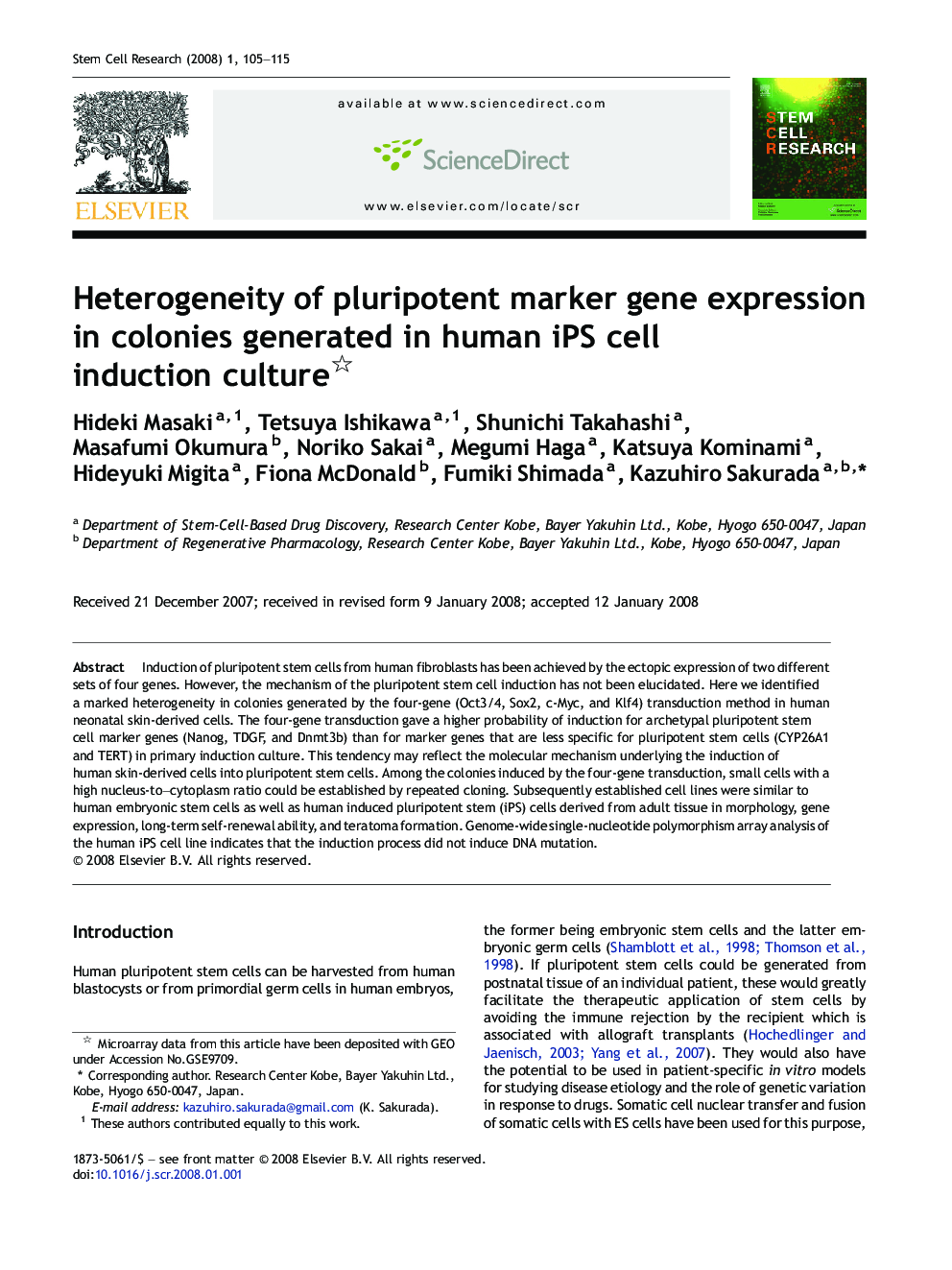| کد مقاله | کد نشریه | سال انتشار | مقاله انگلیسی | نسخه تمام متن |
|---|---|---|---|---|
| 2094416 | 1082016 | 2008 | 11 صفحه PDF | دانلود رایگان |

Induction of pluripotent stem cells from human fibroblasts has been achieved by the ectopic expression of two different sets of four genes. However, the mechanism of the pluripotent stem cell induction has not been elucidated. Here we identified a marked heterogeneity in colonies generated by the four-gene (Oct3/4, Sox2, c-Myc, and Klf4) transduction method in human neonatal skin-derived cells. The four-gene transduction gave a higher probability of induction for archetypal pluripotent stem cell marker genes (Nanog, TDGF, and Dnmt3b) than for marker genes that are less specific for pluripotent stem cells (CYP26A1 and TERT) in primary induction culture. This tendency may reflect the molecular mechanism underlying the induction of human skin-derived cells into pluripotent stem cells. Among the colonies induced by the four-gene transduction, small cells with a high nucleus-to–cytoplasm ratio could be established by repeated cloning. Subsequently established cell lines were similar to human embryonic stem cells as well as human induced pluripotent stem (iPS) cells derived from adult tissue in morphology, gene expression, long-term self-renewal ability, and teratoma formation. Genome-wide single-nucleotide polymorphism array analysis of the human iPS cell line indicates that the induction process did not induce DNA mutation.
Journal: Stem Cell Research - Volume 1, Issue 2, June 2008, Pages 105–115